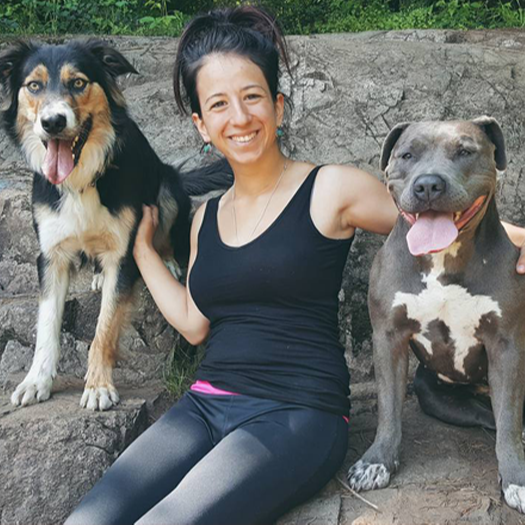What is kennel cough?
Kennel cough is an upper respiratory infection that is highly contagious. Its sounds worse then it is. Kennel cough is basically a dog cold. Symptoms are usually the following:
- Coughing. Some dogs tend to have a 'honking' sound cough
- Hacking. Sounds like they have something stuck in their throat
- Sometimes they will vomit after coughing
- Runny nose and sneezing
- More serious symptoms are lethargy and loss of appetite
Kennel cough can last anywhere from a couple of days to two weeks. A visit to your holistic vet is recommended if your dog experiences these symptoms for more then two weeks and is showing signs of loss of appetite and lethargy.
How do dogs contract kennel cough?
There are a few ways a dog can contract kennel cough. Kennel cough got its name because of how fast it spreads from one dog to another in a kennel. Kennel cough is an air born virus meaning if another dog coughs they can contract it, they can also get it by touching a dog who has it, if they share a contaminated object such as a toy, and they can become affected by sniffing the feces from a dog who was recently vaccinated for bordatella. What a lot of us don't know is a dog who is vaccinated will shed the virus through their feces for two weeks after being vaccinated.
Common areas dogs can contract kennel cough is at a doggy daycare, dog grooming salon, boarding kennel (especially those with poor ventilation systems), dog parks, and dog training classes. Any public area with a lot of dogs theirs the risk of them comtracting it.
How do I support my dog who has kennel cough?
I have found a lot of success using the homeopathic remedy Drosera 30c on my own dogs. I get mine from the company Boiron and would offer 3-5 granules in 1 teaspoon of lukewarm water, I would stir it with a spoon until the granules were dissolved into the water and would put the mixture in their mouth.
By the time I started giving my first dog Ayla Drosera, she had already had kennel cough for one week. The border collie I had at the time had just started coughing , I gave them this remedy every time they coughed or every 2 hours until symptoms improved. Within 3 days both dogs had no more symptoms.
Along with the homeopathic remedy, I gave them bone broth on the first day which is easy to digest accompanied with slippery elm powder which is fantastic for lubricating their throat and digestive system. Slippery elm is also an anti-inflammatory and is known to help soothe the digestive system.
Its important to support the immune system of our dogs so that they can combat kennel cough naturally. To support the immune system it's important to feed a species appropriate diet, offer our dogs clean spring water, and allow them to rest when they aren't feeling well. When I give bone broth on the first day of kennel cough I do this because it takes a lot of energy to digest a meal compared to digesting a nutrient packed liquid bone broth. It doesn't require as much effort. Therefore, the body can focus solely on healing.
When your pet contracts kennel cough naturally, and heals from it naturally that immunity is with them for life. My dogs have only ever been affected by kennel cough once in their life and it has never come back again so far,
Homeopathic remedies for Kennel cough
Aconite: This remedy is useful for the first signs of kennel cough such as hacking or coughing as if something is in their throat.
Drosera: This is the common remedy for kennel cough and is especially useful when your dog has it full on. They will have a deep sounding cough, a dry cough, you dog can experience coughing fits, and sometimes they have a hacking cough. In some cases it can be worse when they are laying down.
There are a several other remedies for kennel cough but these are the two I have personally used and found to work effectively.
Recommended doses for Slippery elm powder:
1/4 teaspoon per 10Ibs body weight. I mix it with either kefir or bone broth.
Author: Isabelle Belisle

